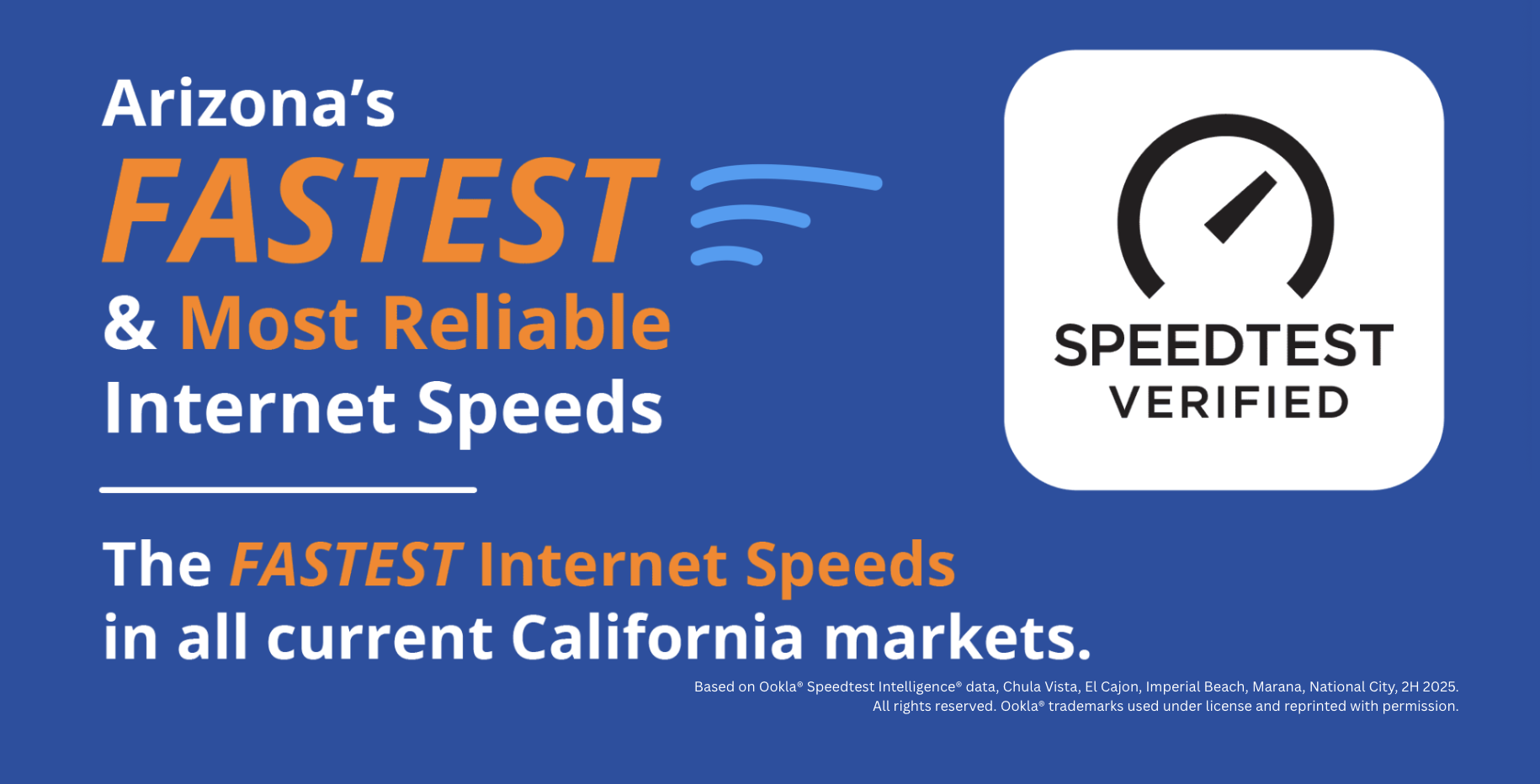You may be surprised how many factors could be at play The first thing you think of when it comes to your home’s Internet speed is probably what you signed up for with your Internet provider, such as 100 Mbps. This network speed represents the speed that comes into your router from outside, and it typically stays consistent within a given range.
However, the Internet speed you experience while using different devices inside your home is subject to more fluctuation, depending on factors including these:
Wired vs. Wireless A hardwired connection will almost always be faster than a Wi-Fi connection from the same router. That’s why you should consider connecting as many of your devices as possible — such as smart TVs, gaming consoles, smart speakers, and other devices that stay in one place n— using an Ethernet cable rather than your Wi-Fi network.
Number of Users and Devices All the devices in your home share your Internet connection, so many devices running simultaneously can negatively impact your Internet speed. Imagine your total bandwidth is a pie, and every device connected to the Internet takes a piece of that pie. The fewer the devices, the bigger each piece of pie, meaning the faster the speed. But the more devices you add to your home’s connection, the less speed each one of those devices will display. nKeep in mind that some online activities use a lot of bandwidth including stream- ing, video chats, and online games. It’s not unusual for your speeds to come down at night when everyone at home finishes dinner and starts enjoying these activities on different devices.
Slow or Outdated Devices A speed problem might not be with your Internet connection—it might be with one or more of the devices you use. Your computer, tablet, phone, or gaming console could be outdated and not capable of processing today’s Internet speeds. nEach device has its own speed limit, which in some cases may not be as fast as your Internet service. The newer the device, the more likely it is to have a faster processor, as well as additional wireless antennas that allow it to send and receive data over Wi-Fi much faster. Older devices can even slow down the speed you get on another device. How? All the information traffic from your entire home network has to wait in line to pass through your router, and older devices with slower connections can cause delays for any traffic lined up behind them.
Age and Location of Router Like your devices, older routers can slow down your Internet connection. If your router is more than three or four years old, it’s probably time to think about replacing it. nThe location of your router in your home can also impact speed. When you’re using Wi-Fi, you’ll get the strongest signal by being closest to your router. Place your router in a central location as high up as possible. Avoid putting it near appliances that send wireless signals such as microwave ovens, cordless telephones, baby monitors, and home automation equipment, since they transmit in a frequency range that’s most likely to generate Wi-Fi interference. Wi-Fi extenders can improve signal strength if your setup is less than optimal.
Viruses and Malware Computer viruses and malware can also slow down your Internet by connecting to your network without your knowledge, lurking in the background, and hogging your bandwidth. To guard against this happening, always run Internet security software and never open email links or attachments from an unknown source.
Data Cap Some Internet providers have data caps, and if you go above a certain threshold of data use, they may slow your speeds down to a crawl. You may even be subject to extra fees. If a data cap applies to your Internet plan, regularly monitor how much data you’ve used by checking your online account or using your provider’s app.
Check with Your Internet Provider for More Assistance If you make changes based on the factors described here and still experience Internet speeds that are slower than you want or expect, the next step is to contact your Internet provider. nYour situation may call for upgrading the speed of your Internet plan, especially if the number of connected devices being used in your home has increased significantly since you signed up. Ask what speed options are available to you, since they often vary by location, and get guidance on which plan may best fit your needs. You may be pleasantly surprised by how much additional Internet speed you can get for only a few dollars more per week. nShould you suspect that your Internet speed issues are related to your Wi-Fi equipment, bring this up with your Internet provider. They may be able to lease you a new router with better functionality and provide a managed Wi-Fi service that will handle router placement, maintenance, and troubleshooting for you.
Featured in Website Compass Magazine



